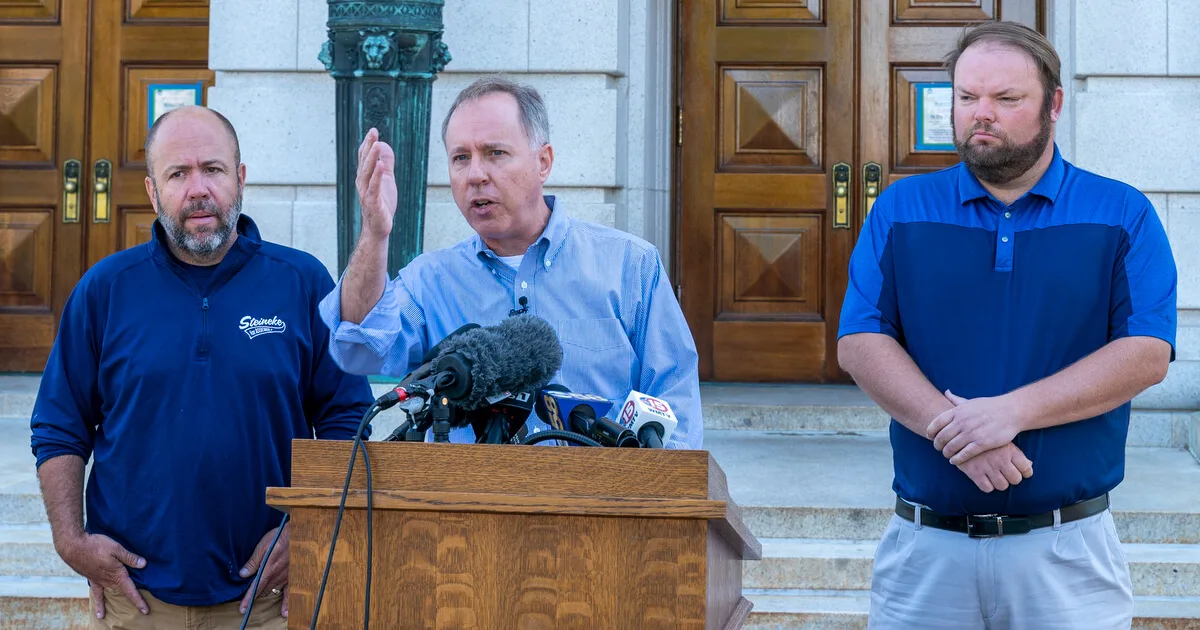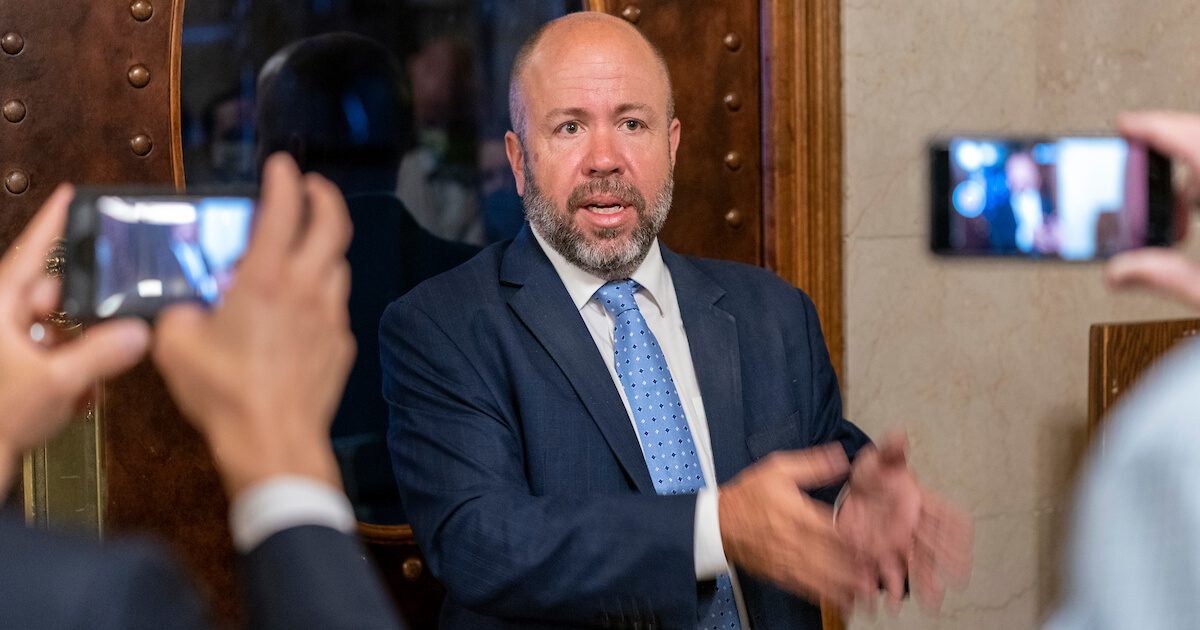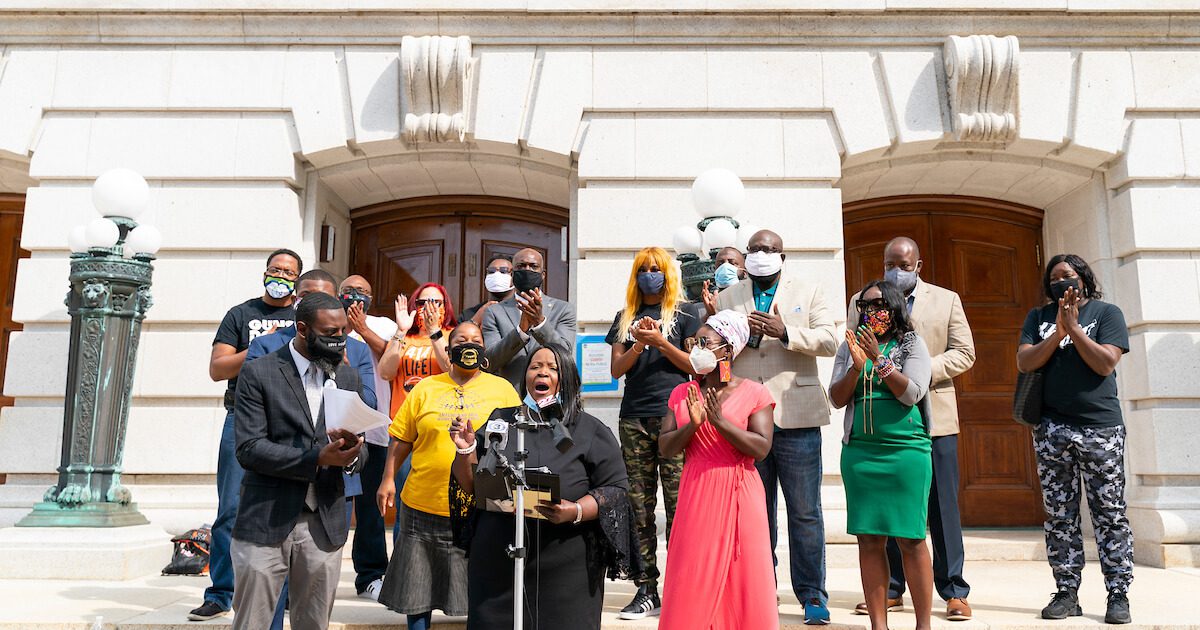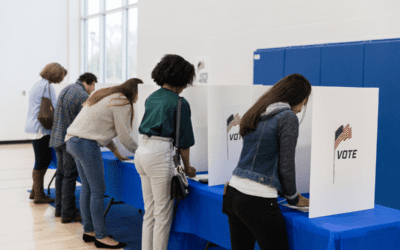
#image_title
Assembly Majority Leader Jim Steineke wrote he wanted to “figure out some guardrails,” providing illusion of Republicans being open to reform while making Democrats look bad.
Twenty-seven hours after Jacob Blake was shot and paralyzed by a Kenosha police officer, an event that propelled Wisconsin into the national debate on race and policing, the Assembly’s No. 2 Republican wrote an email to Assembly Speaker Robin Vos outlining his vision for the Speaker’s Task Force on Racial Disparities, which had been announced earlier that day.
“So this is how I see the task force. Leading it for anyone is probably a political loser,” wrote Assembly Majority Leader Jim Steineke (R-Kaukauna), in an Aug. 24, 2020, previously unpublished email to Vos obtained through an open records request by UpNorthNews. “If you get nothing done you get hammered by the left, part of the middle and the press. You get something done you probably get some kudos from the press but the left and the right will have some issues with it.”
Despite expressing apprehension in the email about the potential “political loser” effect, Steineke volunteered to lead the task force, saying he did not feel like it would get in the way of his political goals.
“I don’t have any delusions of grandeur beyond this [Assembly] seat,” he said. “[County executive] maybe, but that’s it and whatever I do with this would have little impact either way. Anyone else that did it would have to be in a similar spot. And you’d have to trust them not to be too malleable or too intransigent. Tough needle to thread.“
Two weeks later, Steineke was named the task force’s co-chair.

By virtually any metric, Wisconsin has some of the most stark racial disparities in the nation, providing task force leaders a deep well of life-changing topics to address for the state’s Black residents. Wisconsin has the highest disparities between its Black and white residents in median annual household income, Wisconsin incarcerates Black men at the highest rate in the country, and Milwaukee is consistently ranked the most segregated city in America.
Yet Steineke pitches his qualifications to lead the task force not by detailing to Vos how he would address any of these issues, but by stating the task force could be wielded to provide the illusion of Republicans being open to reforms while making Democrats look bad.
“My proposal is for us to sit down and figure out some guardrails. Things we could give on, things we wouldn’t,” Steineke said. “Then I’d sketch out a plan on how to proceed, making sure it takes some time but yet there will be enough activity to show progress.”
Steineke continued: “I truly think if we do this right we have an opportunity to show how Evers could get things done if his [administration] weren’t so damned political. We could also make some inroads with voters we don’t normally reach. Worse [sic] case scenario, we show a willingness to work on these issues and make the Democrats say no to things.”
The email raises the question of whether Republicans, who control both chambers of the state Legislature, ever viewed the group as a genuine force for change in Wisconsin as opposed to a political tool. It also brings into question whether they ever intended for the task force to come up with its own organic recommendations, or simply ones predetermined by the state’s top Republicans.
Vos and Steineke’s offices did not respond to requests for comments.
Steineke’s email stands in stark contrast to public statements he would give as the task force’s co-chair.
When his appointment was announced on Sept. 8, he said the bipartisan, 32-member group, will “show not only the state but the nation that the government isn’t completely broken, that Democrats and Republicans can still work together … to get things done to make significant changes in people’s lives.”
The Assembly Speaker’s Task Force on Racial Disparities, which has missed its original January deadline to send reform and equity proposals to the Legislature, is split into two subcommittees. One group focuses on education and workforce development, chaired by Reps. Kalan Haywood (D-Milwaukee) and Bob Wittke (R-Racine), and the other on police policies and procedures, chaired by Steineke and Stubbs.
Twenty-eight community members serve on the committee, including Wisconsin Professional Police Association President Jim Palmer, Milwaukee NAACP President Fred Royal, Oneida Nation Chairman Tehassi Hill, victims’ advocate Tory Lowe, and SSM Health Regional President of Operations Damond Boatwright. Other advocates, educators, police representatives, and healthcare officials, round out the task force.
Vos had final say over the members, though records show various community groups and elected officials helped inform the decisions.

The task force doesn’t have any legal authority. There is no guarantee any of its proposals will even be voted on by the Legislature, let alone made into law.
It is also unclear if the eventual proposals have already been authored as part of Steineke and Vos’ “guardrails.” However, two members of the police subcommittee told UpNorthNews last month that they received a standalone summary of a Republican-authored police reform package.
The task force leaders did not give them a similar handout for a Democratic package proposed last year by Gov. Tony Evers and Lt. Gov. Mandela Barnes after George Floyd was killed by a Minneapolis police officer. The package calls for banning chokeholds and no-knock warrants.
Republicans ignored the proposals after Floyd’s death, and again in the aftermath of the Blake shooting. When Evers called a special session on the bills, Republican leaders gaveled in and out of the session without debating or voting on anything.
Instead, Vos formed the task force.
“This isn’t a role I relish, but think it’s the right thing to do right now,” Steineke said. “Hopefully you’ll agree, I ask for so little [winking emoji].”
Update: An hour after this story’s publication, Steineke issued the following statement: “When I agreed to be a co-chair for the Speaker’s Task Force on Racial Disparities, I knew we would have our work cut out for us in terms of finding common ground in what has sometimes been a very divisive issue. Through our diverse 33-person membership and in meetings held around the state, we have succeeded in finding areas of consensus and are hopeful that these will translate into real differences for equity in our state. I’m proud of the bipartisan work we’re doing, and look forward to continuing making progress on this important issue.“

Opinion: Many to thank in fair maps victory for Wisconsinites
On February 19, 2024, Governor Tony Evers signed into law new and fair state legislative maps, bringing hope for an end to over a decade of...

Opinion: Empowering educators: A call for negotiation rights in Wisconsin
This week marks “Public Schools Week,” highlighting the dedication of teachers, paras, custodians, secretaries and others who collaborate with...

Op-ed: Trump’s journey from hosting The Apprentice to being the biggest loser
Leading up to the 2016 election, Donald Trump crafted an image of himself as a successful businessman and a winner. But in reality, Trump has a long...

Not just abortion: IVF ruling next phase in the right’s war on reproductive freedom
Nearly two years after the US Supreme Court overturned Roe v. Wade, another court is using that ruling to go after one of the anti-abortion right’s...




